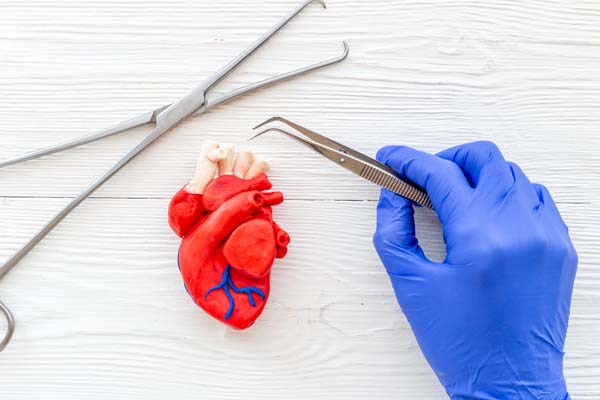3 Signs You Need to See a Heart Specialist

You know that you need to visit your primary care provider once a year, but what about a heart specialist? Almost one in every four deaths in the United States is due to heart disease, according to the Centers for Disease Control. Premature death is often prevented with treatment from a heart specialist. However, you probably do not know if you need to see a specialist for your heart. Learn the signs and make an appointment if needed.
Warning signs that it is time to see a heart specialist
Far too many people ignore the warning signs regarding their hearts. Many people believe the symptoms will disappear so they delay treatment. Others think a discussion with a primary care provider is enough. Warning signs should not be ignored or passed off to a primary care provider. People who have these symptoms should contact a heart specialist.
1.Chest pain or pressure
Chest pain and pressure are not necessarily signs of heart conditions. Discomfort can be from something as common as heartburn. However, if the pain or pressure gets worse during exercise or other activities, a trip to a heart specialist is in order. The doctor will run tests to see if the heart is getting enough blood while also checking for other issues.
However, patients should call 911 if they exhibit heart attack symptoms. With a heart attack, chest pain or tightness is usually accompanied by other symptoms. Men normally experience cold sweats, left arm pain, squeezing and pressure in the chest. Also, the pain might spread to the jaw, neck and shoulders.
Women experience heart attacks differently. Heart palpitations, dizziness, lower chest pain and jaw or back pain are common symptoms of heart attacks in women. Women also might have unexplained fatigue, anxiety, nausea and shortness of breath. A heart attack is an emergency and immediate treatment is needed.
2.High blood pressure
Primary care providers use medication to regulate blood pressure. However, patients are encouraged to visit a heart specialist as well. High blood pressure can damage the arteries and cause them to narrow. This can cause significant damage to the heart.
The specialist can run tests to see if high blood pressure has already caused damage. The doctor can also help the patient manage the blood pressure. Blood pressure management often includes lifestyle changes. For example, patients might be asked to reduce stress, get more exercise and eat healthy foods. Those who smoke will be encouraged to quit.
3.Family history of heart disease
Genetics play a large role in people’s overall health. People with a family history of heart disease should see a heart specialist. The doctor can help the patient take preventative measures to reduce the risk of developing heart conditions. The heart specialist might continue to monitor the patient as well.
Do you need a heart specialist?
Your heart is one of your body’s most important organs. Keeping it healthy is critical for living a long life. See your heart specialist if you experience chest pains, have high blood pressure or have a family history of heart disease. The specialist can examine you, run tests and provide treatment if necessary. With the right help, you can enjoy a happy, healthy and active life.
Get more information here: https://floridapremiercardio.com or call Florida Premier Cardiology at (561) 325-6495
Check out what others are saying about our services on Yelp: Read our Yelp reviews.
Recent Posts
The heart's valves must remain healthy and upright to promote an overall healthy heart and cardiovascular system. However, sometimes, they can weaken. Fortunately, various valvular disease treatment are available to address damage. Whether valves begin to narrow or leak, timely treatment is necessary.There are two main types of heart valve disease: regurgitation and stenosis. The…
A heart specialist is a doctor specializing in diagnosing and treating cardiovascular conditions. Patients may be referred to one of these doctors for several reasons, from diagnosing a heart health issue to getting cleared for surgery. However, seeing a heart specialist is even more crucial for those either experiencing the signs of heart disease or…
Cardiologists use cardiovascular treatment to address any condition affecting any part of the cardiovascular system, including the heart, blood, and blood vessels. Treatment is a broad term that can refer to various procedures or methods that range in invasiveness. Choosing one depends on your cardiovascular disease or condition, as well as the overall state of…
Cholesterol management is key to long-term heart health. Fortunately, there are many ways in which a cardiologist may approach high cholesterol. From routine monitoring to advice on healthier habits, learn how a cardiologist may improve heart health through a tailor-made cholesterol management plan.Cholesterol is a waxy but naturally occurring substance. According to the American Heart…


